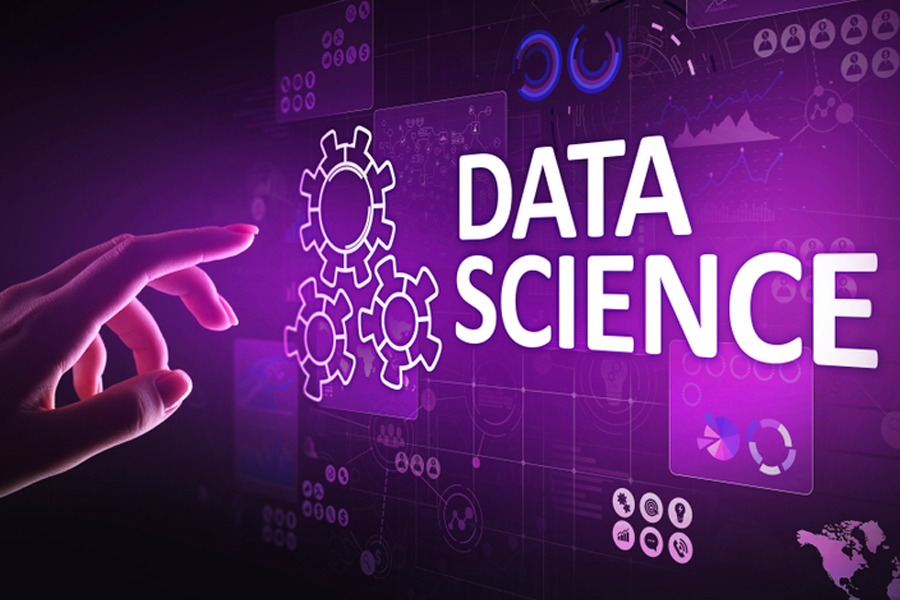
The Ultimate Path to Becoming a Successful Data Scientist in the Modern Era
Introduction:
Data science, the buzzword of the modern era, is a field that combines statistical prowess, technological savvy, and a knack for analytical problem-solving. In a world increasingly driven by data, the role of a data scientist has become more crucial than ever. This blog explores the landscape of data science, its scope in today’s tech-driven world, and how aspiring professionals can forge a successful career in this dynamic field.
The Scope of Data Science in the Modern Era:
Using a blend of scientific methods and algorithms, data science is the field that uncovers insights from all kinds of data. It’s more than just number-crunching; it’s about applying these insights to solve complex problems. The technological backbone of data science includes big data technologies, machine learning algorithms, predictive analytics, and data visualisation tools.
The advent of big data has significantly expanded the scope of data science. Industries like healthcare, finance, retail, transportation, etc., are leveraging data science to drive decision-making and strategic planning. The demand for data scientists is soaring due to these valuable requirements.
Becoming a Sought-After Data Scientist:
Data scientists are the magicians of the information age, turning raw data into valuable insights. Enrolling in a data scientist course equips these professionals with the necessary skills to make data-driven decisions, forecast trends, and develop AI-driven technologies. Their expertise is sought after and essential in our increasingly data-centric world.
Let us discover what the steps to becoming a successful data scientist look like:
1. Strong Educational Foundation:
Typically, a bachelor’s degree in a relevant field like computer science, statistics, or mathematics is essential.
2. Excellence in Analytical Tools:
Strong proficiency in Python, R, SQL, and Tableau.
3. Comprehension of Machine Learning:
Familiarization with machine learning algorithms and frameworks.
4. Understanding of Statistical Skills:
Strong statistical knowledge is crucial for interpreting data.
5. Big Data Technologies:
Skills in Hadoop, Spark, and similar technologies are increasingly important.
6. Strong Soft Skills:
Communication and business acumen are vital for translating data insights into actionable business strategies.
7. Continuous Learning:
Keeping up-to-date with evolving industry innovations and trends.
8. Impressive Portfolio:
Works on real-world projects and a strong portfolio to showcase skills.
9. Networking and Community Involvement:
Participation in data science forums, meetups, and conferences.
10. Ethics and Data Privacy:
Understanding ethical implications and data privacy laws.
Must-have Skills and Tools for Data Scientists
As the field of data science continually transforms, it’s essential to remain at the forefront and evolve with it. Hence, data scientists need to master diverse skills and tools. Here’s a breakdown of the most essential ones:
1. Foundational Skills:
Programming Languages:
Python reigns supreme, but R and Julia are valuable for specific tasks. Familiarity with SQL for database querying is crucial.
Statistics and Probability:
Understanding statistical concepts like hypothesis testing, regression analysis, and probability distributions is fundamental for data analysis.
Mathematics:
Linear algebra, calculus, and optimisation techniques are essential for understanding complex algorithms and building predictive models.
2. Machine Learning and Deep Learning:
Machine Learning Algorithms:
Mastering fundamental algorithms like linear regression, decision trees, random forests, and k-nearest neighbours is critical.
Deep Learning Frameworks:
Familiarity with TensorFlow, PyTorch, and Keras is increasingly essential for building complex AI models.
Natural Language Processing (NLP):
Learning skills in text classification, sentiment analysis, and machine translation for better data insights.
3. Data Wrangling and Analysis:
Data Cleaning and Preprocessing:
The ability to clean, format, and transform messy data into a usable format is crucial for accurate analysis.
Data Visualization:
Mastering tools like Tableau, Power BI, and Python libraries for creating insightful and informative visualisations is essential for communicating findings effectively.
Big Data Technologies:
Familiarity with tools like Hadoop, Spark, and distributed computing platforms is essential for handling large datasets.
4. Soft Skills:
Communication and Storytelling:
Effectively communicating complex data insights to diverse audiences is crucial for success in any data-driven role.
Problem-solving and Critical Thinking:
The ability to identify problems, analyse data, and develop solutions is essential for any data scientist.
Collaboration and Teamwork:
Data science often involves working with other professionals, so strong collaboration and teamwork skills are vital.
5. Essential Tools:
Version Control Systems:
Git and GitHub are essential for managing code and collaborating on projects.
Cloud Computing Platforms:
AWS, Microsoft Azure, and Google Cloud Platform are increasingly important for data storage, processing, and model deployment.
Open-source Libraries:
Python libraries like NumPy, Pandas, Scikit-learn, and TensorFlow are widely used for data analysis and machine learning tasks.
Courses and Eligibility:
Numerous data scientist courses are available for those looking to dive into this field. Covering essentials to complex concepts, the courses offer a comprehensive journey through data science, covering various aspects of data science. The eligibility to enrol in a data scientist course typically includes a background in mathematics or computer science, although many programs are also designed for individuals with non-technical backgrounds.
In tech hubs like Bangalore, the demand for skilled data scientists has led to a surge in specialised data scientist courses. These courses in Bangalore are designed to meet the industry’s growing needs, providing hands-on experience with real-world data sets and problems.
Salary and Growth Prospects:
Data science is a field that’s intellectually stimulating and financially lucrative. As of 2023, the average salary of a data scientist in India can range from INR 6 lakhs to INR 20 lakhs per annum, depending on experience and specialisation. Data science careers are set to rise by 15% by 2029, a growth rate surpassing that of many other fields, according to the U.S. Bureau of Labor Statistics.
Data Scientist Course in Bangalore:
The data science course in Bangalore blends theoretical knowledge and practical experience. These courses cover various topics, from data preprocessing and visualisation to advanced machine-learning techniques. They are not just about technical learning; they also emphasise the application of data science in solving real-world problems. As data continues to proliferate across all sectors, data scientists who have taken a data science course in Bangalore enjoy lucrative careers with significant potential to impact various facets of business and society.
Conclusion:
Becoming a successful data scientist requires dedication, continuous learning, and a passion for data. With the right educational background, a keen understanding of the latest technologies, and practical experience, anyone can embark on this rewarding career path. With the world increasingly revolving around data, the role of a data scientist becomes more crucial, opening doors to an exciting and gratifying profession.
ExcelR – Data Science, Data Analytics Course Training in Bangalore
Address: 49, 1st Cross, 27th Main, behind Tata Motors, 1st Stage, BTM Layout, Bengaluru, Karnataka 560068
Phone: 096321 56744



